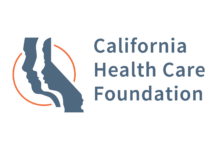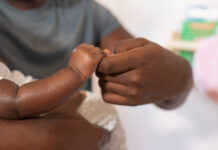Racial Differences in Employment Status of College Students and Recent Graduates
For people 20 to 29 years of age, Blacks made up 11 percent of all students who earned a bachelor’s degree in 2022. Some 83.6 percent of these recent African American college graduates were employed compared to 81.1 percent of Whites. But 8.7 percent of 2022 African American college graduates in this age group were unemployed, compared to 5.5 percent of White college graduates in this age group.
Report Looks at Reasons for Declining Enrollments in Higher Education
Black students are more likely than White students to say it was difficult for them to remain enrolled in their programs. Some 43 percent of Black students say they considered stopping out in the past six months — up from 37 percent in 2021. The cost of higher education is cited as the main reason for stopping out.
HBCUs Receive Only a Tiny Fraction of Higher Education Grants From Major Foundations
From 2015 to 2019, the eight Ivy League schools received a combined $5.5 billion in philanthropic dollars from major foundations compared to HBCUs’ $303 million. The average Ivy League institution received 178 times more foundation funding than the average HBCU.
African American Voting Statistics in the 2022 Midterm Elections
For Blacks who did not vote, 25.8 percent said they were too busy or had conflicting schedules. Nearly 16 percent said they were not interested, a lower rate than for White non-voters. Nearly 10 percent of Blacks who did not vote said they forgot to do so, 8 percent said they were away from home, and 13.4 percent said they were sick or disabled.
How to Maintain Racial Diversity If the Supreme Court Prohibits Race-Sensitive Admissions
A new report from the Center on Education and the Workforce in the School of Public Policy at Georgetown University finds that the racial and ethnic diversity of students at the nation's most selective colleges and universities will decrease significantly unless these colleges fundamentally alter their admissions practices.
Black Mothers With Advanced Degrees Have a Higher Rate of Preterm and Low-Weight Babies
The study, presented recently at the Pediatric Academic Societies in Washington, D.C., found that nearly 10 percent of Black mothers with a graduate degree had low birth-weight babies compared to 3.6 percent of White mothers with a master's or doctoral degree.
The Presence of Black Physicians in a County Boosts Black Life Expectancy
In a study by the Association of American Medical Colleges, researchers found that there were no Black primary care physicians in more than half of all counties in the United States. They also found that a 10 percent increase in Black primary-care physician representation in a county was associated with a higher life expectancy for Blacks of 30.61 days.
Brookings Institution Study Examines the High School Graduation Rate Gap by Race and Gender
In some states, the on-time high school graduation rates for specific sub-groups are quite low. In Michigan, for example, only 61 percent of Black boys graduate high school on time, compared to 75 percent of Black girls, 81 percent of White boys, and 87 percent of White girls.
Blacks Make Up a Large Share of Students With Some College Credits But No...
A new report from the National Student Clearinghouse Research Center finds that Black students made up 13.8 percent of all enrolled undergraduate students but 19.4 percent of all students who entered college in 2013 or later and who have not earned a credential.
Report Examines Racial Diversity in the Nation’s Newsrooms
A new study from the Pew Research Center finds that only 6 percent of all reporting journalists in the United States are Black. Only 3 percent of all journalists whose primary beat is science are Black. Blacks are 2 percent of all reporters whose primary focus is on the environment or energy.
New ACE Report Presents Data on College Presidents Who Are Black
The American Council on Education report finds that the college presidency remains older, White, and male. But, Blacks or African Americans were 13.6 percent of college or university presidents, approximately equal to the percentage of Blacks in the U.S. population.
Racial Disparities in Working From Home Before and After the Pandemic
In 2019, Whites were 80.5 percent of all people who worked from home. Blacks made up 7.8 percent of all home-based workers. By 2021, Whites were 66.8 percent of all home-based workers and Blacks made up 9.5 percent of this group.
Special Education Teacher Shortage Has Huge Impact on Black Students
A new study finds that special education is the No. 1 teacher shortage area in 48 states. At the same time, a growing number of students of color have been identified as having a disability.
Zillow Study Finds Racial Disparities in Rental Applications and Security Deposits
The report found that on average Blacks had a $150 higher security deposit than Whites. About 93 percent of renters of color had to pay a security deposit last year, while 85 percent of white renters had to post a security deposit.
Nursing Staff Shortages at Some Hospitals May Impact the Black Maternal Mortality Rate
A new study found that hospitals serving more patients at risk for complications during childbirth are less likely to have enough nurses to care for patients. This may be contributing to poor maternal health outcomes in the U.S. for the most vulnerable childbearing populations, including Black mothers.
How to Maintain Racial Diversity If the Supreme Court Prohibits Race-Sensitive Admissions
A new report from the Center on Education and the Workforce in the School of Public Policy at Georgetown University finds that the racial and ethnic diversity of students at the nation's most selective colleges and universities will decrease significantly unless these colleges fundamentally altered their admissions practices.
Faculty From Underrepresented Groups Come Up Short in Tenure Appointments
Half of all faculty from underrepresented groups were part-time in 2021 compared to 44 percent of White faculty and 26 percent of Asian faculty. Some 37 percent of all faculty from underrepresented groups held tenure, compared to 45 percent of White faculty and 47 percent of Asian faculty.
How the COVID-19 Pandemic Impacted Black Church Attendance
Black Protestants remain the U.S. religious group most likely to be viewing services virtually. At the height of the pandemic, two-thirds of Black Protestants reported they participated in virtual services over the past month. In the most recent survey, 54 percent of Black Protestants say they participated in services online or on TV in the last month.
Black Patients Change Their Appearance and Behavior to Avoid Bias by Healthcare Providers
A new study by the California Health Foundation finds that many Black Californians report adjusting their appearance or behavior — even minimizing questions — all to reduce the chances of discrimination and bias in hospitals, clinics, and doctors’ offices.
A Rise in Simultaneous Alcohol and Marijuana Use Among African American College Students
A new study led by researchers at Tulane University in New Orleans finds that simultaneous alcohol and marijuana use among college students is on...
Study Finds a Huge Racial Disparity in Newborn Drug Testing
A new study led by researchers at the University of Michigan finds that clinicians ordered drug tests to be performed on Black newborns at nearly four times the rate of other children. In total, 24 states and the District of Columbia consider substance use during pregnancy to be child abuse under civil child-welfare statutes.
Attending an HBCU Can Have Long-Term Mental Health Benefits for Some Students
Researchers at the University of Minnesota tracked a large group of African Americans from their high school years until many years after they attended college. They found no overall association for lower symptoms of depression for HBCU students compared to their peers who attended predominantly White schools But for some subsets of HBCU students, there was a positive impact.
The Racial Disparity in Incarceration Rates Has Declined but Remains Large
In 2020, Black adults were imprisoned at 4.9 times the rate of White adults, down from 8.2 times in 2000. Much of the decline was due to a reduction in prison time for drug-related offenses. However, in 2020, Black individuals comprised approximately 13 percent of U.S. residents but accounted for 56 percent of homicide victims and 39 percent of those arrested for homicide.
Police Reports on Facebook Overrepresent Black Suspects Relative to Actual Arrest Rates
Researchers analyzed 100,000 posts from nearly 14,000 Facebook pages maintained by law enforcement agencies in the United States that reported on the race of individuals suspected of or arrested for crimes. Black suspects were described in 32 percent of Facebook posts but represented just 20 percent of all people arrested.
Research Published in the Journal of the National Medical Association Is Largely Ignored
The National Medical Association was established in 1895 because physicians of color were not permitted to be members of the American Medical Association. Today, the National Medical Association has 30,000 members. A recent study finds that articles published in the association's medical journal are almost never cited in the Journal of the American Medical Association.
Many Black Americans Have a Very Dim View of Capitalism
In an August 2022 survey by the Pew Research Center, 54 percent of Black adults said they had a very or somewhat negative impression of capitalism, up from 40 percent in May 2019. Four-in-ten Black adults held a very or somewhat positive view of capitalism in 2022, down from 57 percent in 2019.
New Study May Help Reduce the Vast Racial Disparity in Prostate Cancer
Black men are more than twice as likely as other men to die from prostate cancer. A new study led by researchers at the University of Southern California identified nine new genetic risk factors for prostate cancer, seven of which are found either largely or exclusively in men of African ancestry. This new information can help patients understand their cancer risk and decide how early and often to get screened.
Boston University Study Finds Racism Is a Factor in High Rates of Heart Disease...
A team of researchers who followed more than 48,000 Black women over 22 years found those who reported experiencing interpersonal racism in employment, housing, and in interactions with the police had a 26 percent higher risk of coronary heart disease than those who did not.
Black Scholars Are Underrepresented Among “Super Principal Investigators” on NIH Grants
Super principal investigators have three or more concurrent grants from the National Institutes of Health. In 2020, just 1 percent of all Black principal investigators were super principal investigators. For Whites, 4.1 percent of all principal investigators were super principal investigators.
Blacks Are Making Progress in Leadership Positions at Athletic Powerhouse Universities
But the Institute for Diversity and Ethics in Sport (TIDES) at the University of Central Florida notes that Blacks are only 9.9. percent of the head football coaches at the 131 colleges and universities that make up the Football Bowl Subdivision (FBS) of Division I of the National Collegiate Athletic Association. African Americans made up 49 percent of the football players at these schools.
More Than One in Five Black Students in Higher Education Say They Face Discrimination...
A new survey by the Gallup Organization for the Lumina Foundation finds that 21 percent of all Black students currently enrolled in U.S. higher education say they feel discriminated against “frequently” or “occasionally” in their program. The problem is most severe at private, for-profit institutions, according to the survey.
Yale Study Finds Racial Disparity in Uterine Cancer Testing and Diagnosis
Patients who receive an early diagnosis of uterine cancer, have a 95 percent chance to survive for at least five years. But Black patients are less likely than their White counterparts to receive diagnostic testing and for those who do receive the recommended procedures, Blacks are more likely to experience delays in testing and diagnosis.
Survey Explores Black American Adults’ Opinions on Equal Rights for Women and Feminism
A new survey by the Pew Research Center finds that among Among college-educated Black adults, 61 percent believe that the feminist movement has helped Black women. Only 45 percent of Black adults with only a high school education agree. Only 16 percent of Black adults believe that feminism has helped Black women a lot.
The Persistent Racial Gap in Educational Attainment in the United States
In 2022, 27.6 percent of African Americans over the age of 25 had obtained at least a bachelor’s degree. For non-Hispanic Whites, the figure was 48.2 percent. Some 10.1 percent of Black adults held a graduate or professional degree compared to 15.7 percent of non-Hispanic Whites.
Study Shows How High Incarcertation Rates Among Black Men Impact Their Families
More than 1.1 million African American men are imprisoned in the United States, and about 500,000 are fathers. Many of their fathers also served time in jail or prison, and studies have shown that it is likely that many of their children will as well.
How Teacher Development Initiatives Can Increase Black Students’ Pursuit of STEM Degrees
A new study led by scholars at Rice University in Houston, Texas, found that when middle and high school teachers in science, technology, engineering and mathematics (STEM) pursue continuing professional development, their students benefit. The effect was particularly evident for Black girls.





































